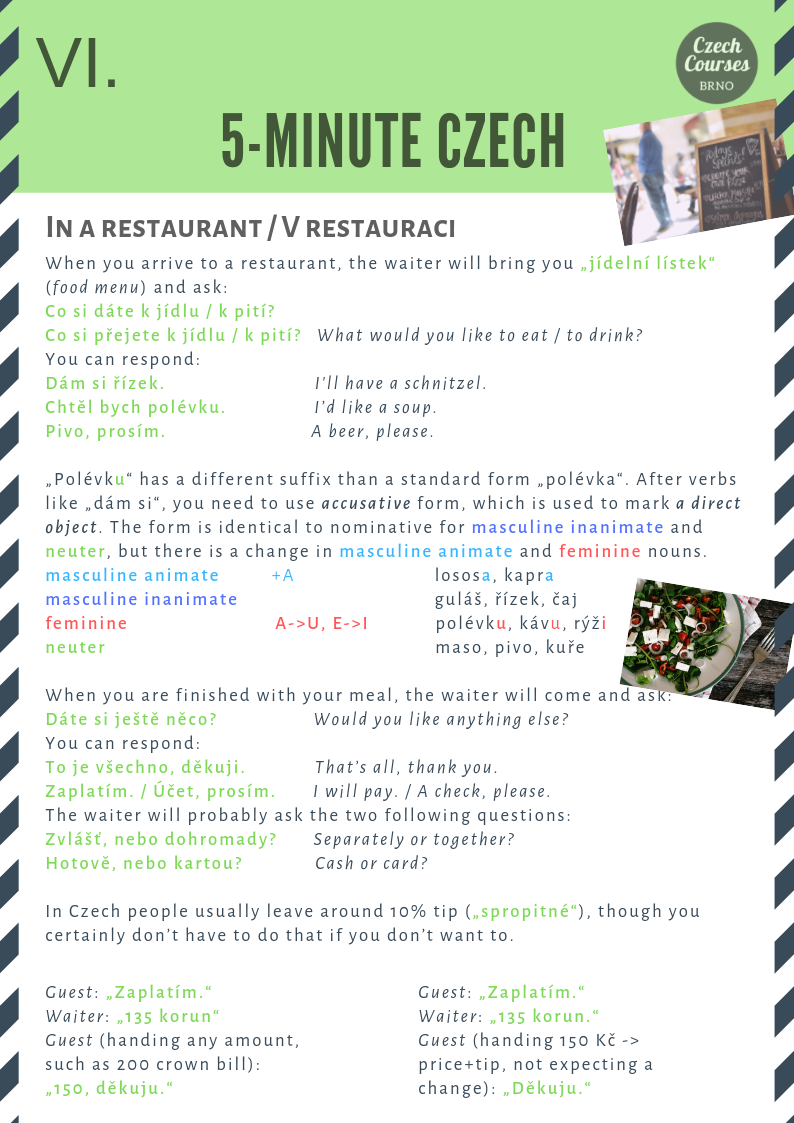Today we'll have a look at some basic phrases to use in a restaurant. You'll learn how to order, ask for a check and leave a tip, and some grammar, too!

5-minute Czech - Beginner
When you arrive to a restaurant, the waiter will bring you „jídelní lístek“ (food menu) and ask:
Co si dáte k jídlu / k pití?
Co si přejete k jídlu / k pití? What would you like to eat / to drink?
You can respond:
Dám si řízek. I'll have a schnitzel.
Chtěl bych polévku. I’d like a soup.
Pivo, prosím. A beer, please.
„Polévku“ has a different suffix than a standard form „polévka“. After verbs like „dám si“, you need to use accusative form, which is used to mark a direct object. The form is identical to nominative for masculine inanimate and neuter, but there is a change in masculine animate and feminine nouns.
masculine animate +A lososa, kapra
masculine inanimate guláš, řízek, čaj
feminine A->U, E->I polévku, kávu, rýži
neuter maso, pivo, kuře
When you are finished with your meal, the waiter will come and ask:
Dáte si ještě něco? Would you like anything else?
You can respond:
To je všechno, děkuji. That’s all, thank you.
Zaplatím. / Účet, prosím. I will pay. / A check, please.
The waiter will probably ask the two following questions:
Zvlášť, nebo dohromady? Separately or together?
Hotově, nebo kartou? Cash or card?
In Czech people usually leave around 10% tip („spropitné“), though you certainly don’t have to do that if you don’t want to.
Guest: „Zaplatím.“
Waiter: „135 korun.“
Guest (handing any amount, such as 200 crown bill): „150, děkuju.“
Guest: „Zaplatím.“
Waiter: „135 korun.“
Guest (handing 150 Kč -> price+tip, not expecting a change): „Děkuju.“
